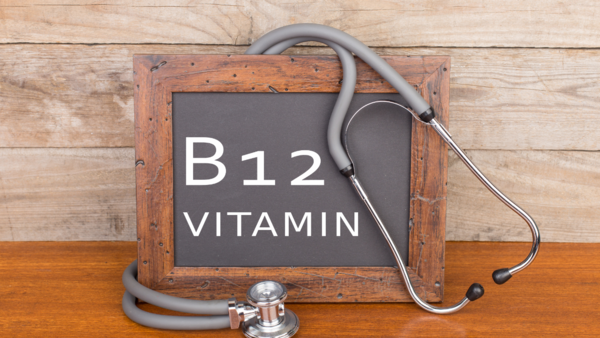Experiencing persistent fatigue? Don't dismiss it. Feeling exhausted, even after adequate rest, can indicate an underlying health concern. Fatigue is a common symptom of vitamin B12 deficiency. This crucial nutrient supports vital bodily functions, including DNA synthesis, energy production, and a healthy nervous system.
Alarmingly, a 2019 study revealed that approximately 47% of the Indian population suffers from vitamin B12 deficiency. Dr. Alok Chopra, a renowned cardiologist and functional medicine expert, sheds light on the significance of vitamin B12, its sources, and the risks associated with its deficiency, particularly among vegetarians.

Vitamin B12 is a water-soluble nutrient essential for various bodily processes. Dr. Chopra emphasizes that it's "essential for metabolism, digestion, and overall health." It's naturally found in certain foods and also available as a dietary supplement or prescription medication.
Vitamin B12 is naturally present in animal products like fish, poultry, eggs, and milk. However, it is largely absent in plant-based diets unless foods are fortified. "Vegetarians always have a problem with not having enough B12," Dr. Chopra notes.
Plant-based options generally lack B12, but fortified foods like nutritional yeast and some cereals can provide a reliable source. He suggests that vegetarians consider supplements or B12-fortified products to meet their daily requirements.

Vitamin B12 plays a vital role in numerous bodily functions:

Despite its crucial role, vitamin B12 deficiency is quite common. Some common symptoms include:
Dr. Chopra advises, "Deficiency can be cured by adequate nutrition, intramuscular injections, or even oral B12 therapy."
However, he also cautions against excessive vitamin B12 intake. "Overuse can cause diarrhea, itching, rashes, headache, dizziness, nausea, and heart failure. Patients with optic neuropathy, polycythemia, gout, iron, folate deficiency, and when there are low potassium levels, you must consult a doctor."
Dr. Chopra advises against combining vitamin B12 supplements with vitamin D. "Vitamin B12 and D should not be taken together as vitamin D is fat soluble and is absorbed better with food, and B12 is water soluble and taken on an empty stomach. Same for vitamin C," he explains.
Newer articles
Older articles
 Esha Gupta Sets Record Straight: Actress Addresses Hardik Pandya Dating Rumors
Esha Gupta Sets Record Straight: Actress Addresses Hardik Pandya Dating Rumors
 Google Maps to Boost Navigation Accuracy with Fused Orientation Provider API
Google Maps to Boost Navigation Accuracy with Fused Orientation Provider API
 Global Vaccination Rates Plunge: Millions of Children Now Vulnerable to Preventable Diseases
Global Vaccination Rates Plunge: Millions of Children Now Vulnerable to Preventable Diseases
 Rishabh Pant: Greg Chappell Hails India Star as Cricket Revolutionary
Rishabh Pant: Greg Chappell Hails India Star as Cricket Revolutionary
 Skin Cancer Alert: How to Identify Suspicious Moles and Early Warning Signs
Skin Cancer Alert: How to Identify Suspicious Moles and Early Warning Signs
 Gavaskar Calls for Kuldeep Yadav's Inclusion in Second Test Amid Bumrah Fitness Concerns
Gavaskar Calls for Kuldeep Yadav's Inclusion in Second Test Amid Bumrah Fitness Concerns
 Is Daily Pooping a Must? Understanding Bowel Regularity and When to Worry
Is Daily Pooping a Must? Understanding Bowel Regularity and When to Worry
 Suryakumar Yadav's Sports Hernia: Understanding the Injury, Recovery, and Risk Factors for Athletes
Suryakumar Yadav's Sports Hernia: Understanding the Injury, Recovery, and Risk Factors for Athletes
 Vijay Sethupathi Apologizes Amid Controversy Over Son Surya's Debut Film 'Phoenix' and Alleged Video Removal Pressure
Vijay Sethupathi Apologizes Amid Controversy Over Son Surya's Debut Film 'Phoenix' and Alleged Video Removal Pressure
 Install Baccarat Hack Tool: The Secret to Winning
Install Baccarat Hack Tool: The Secret to Winning